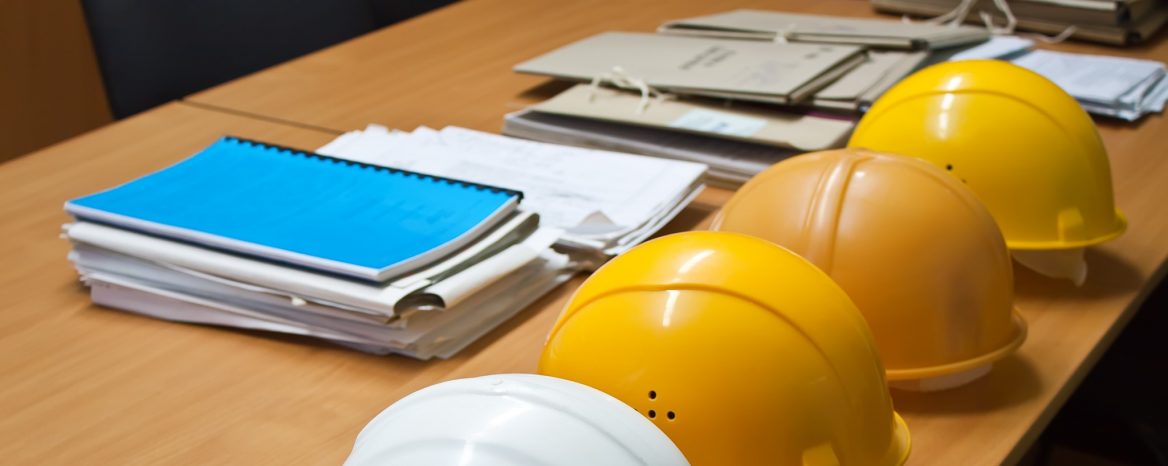WCRE and RENOVATED proudly present your guide to commercial property maintenance. Property maintenance is a part of owning any commercial building, and while it may not be glamorous, it is necessary. Proper care can improve the relationship between landlord and tenant. It also helps preserve safety and increase property value and market interest. Whether you’re new to the industry or have owned property for years, this comprehensive guide will highlight everything you need to consider when designing a maintenance plan. Reading through these nine questions will help you get started.
Download Printable Article (PDF) >>>
1. What is Commercial Property Maintenance?
Commercial property maintenance is the work carried out to preserve the property’s safety, cleanliness and integrity. This work includes cleaning common areas and repairing any significant issues in the building. It’s the owner’s responsibility to ensure that someone is carrying out these duties. Depending on the commercial property’s size and the amount of work needed, the owner may choose to hire a maintenance team, complete the work themselves or contract each task to private workers. It’s best to examine and maintain systems seasonally and clean weekly or bi-weekly as needed.

2. What Duties Fall Under This Category?
The scope of property maintenance is quite widespread and includes all tasks necessary to keep the building running safely and efficiently. While owners wouldn’t typically handle small tasks — like switching out a lightbulb for occupants — they are responsible for completing major repairs and maintenance relating to systems. They must pay special attention to heating, ventilation, and air conditioning (HVAC) to ensure tenants’ and visitors’ safety. Common types of maintenance duties include:
• Rodent and insect control.
• Electrical, plumbing and HVAC installation and repairs.
• Cleaning of common spaces like staircases.
• Safety checks for fire-fighting systems like extinguishers, alarms and sprinklers.
• Landscaping and outdoor cleanup.
• Trash disposal.
• Roof and gutter repair and cleaning.
Besides maintaining the commercial property’s systems and structure, the owner will need to choose which products to purchase. It’s important to think strategically when making these decisions because a poor choice could lead to higher lifetime costs and maintenance fees. To ensure you’re making the best decision for your building, you’ll need to evaluate the upfront costs and break-even point.

3. What is the International Property Maintenance Code?
The International Property Maintenance Code (IPMC) is a code establishing and regulating the minimum maintenance requirements for existing commercial properties. The code includes standards for topics like structural integrity, ventilation, sanitation and lighting. As a commercial property owner, you need to meet or surpass these standards within your building. If your property fails to meet these standards, you may face legal and financial repercussions.
As you must follow the IPMC, it’s best to use it as a guide and build off those requirements to design a service that meets your needs.
4. How Can You Offer a Superior Service?
Superior service will help your property stand out. After all, most people forget passable experiences because they’re not note-worthy. Often customers and renters will only remember their best and worst experiences in life, so you should strive to offer a first-class encounter.
To do so, you’ll want to provide consistent, high-quality results. Technology has led to an increase in instant communication and gratification. Keeping that in mind, you’ll want to respond to maintenance requests promptly. An automated system will help to streamline the process and inform the tenant of its progress.
The simplest way to ensure speed and efficiency is to offer an on-call service. If you have an in-house maintenance team or contractors on retainer, you’ll be able to address most issues within the week of the filed request. However, repairs — especially those conducted on short notice — can get expensive, so you’ll need to keep detailed records of all services and related costs. Prioritizing preventative maintenance can help to reduce the frequency of repair inquiries.
5. Should You Have an In-House Property Maintenance Team?
Forming an in-house property maintenance team offers many benefits to simplify the owner’s responsibilities, like allowing better communication between landlords and renters. An internal team will also produce a greater level of control relating to maintenance costs and budget allocations because workers receive a steady wage rather than a sum with each completed task.
An in-house team will give you supervision over the work conducted. If you decide to form a group, you’ll want to determine how many members you’ll need along with what skills are the most important. You’ll want to hire people for their expertise relating to standard systems like electricity and plumbing and outsource any work on niche assignments like structural engineering. Depending on the property’s size, you may need a large team and a dedicated supervisor to keep everyone on task.
6. Would it be Beneficial to Hire a Professional Service?
A professional property maintenance service reduces the owner’s responsibilities by providing structured and organized assistance. While you wouldn’t need to handle maintenance problems daily, outsourcing the work creates a disconnect between tenants and the landlord. It also gives most of the control to other people, leading to catastrophic situations if the contractors provide inadequate service. Ultimately, hiring a professional service provider instead of an in-house team may reduce your stress, but it also has the potential to destroy your reputation.
7. How Can You Keep the Property in Excellent Condition?
Maintenance saves you money because you’re servicing machinery to keep it from breaking down. If you wait until systems fail, the expenses to fix or replace what’s broken are much higher. If you prioritize funding for these projects, it will be easier to establish a superior service. Using what you’ve budgeted, you’ll want to purchase high-quality products and replacement parts. The adage “you get what you pay for” is especially true in construction. You’ll save more money by doing it right the first time rather than needing to make repairs.
Taking advantage of technology will help keep your property in excellent condition. Programs related to maintenance management and auditing will help you to stay organized. Scheduling property audits will provide you with greater insight into daily operations. These audits are especially beneficial to owners who live out-of-town and cannot visit the building site regularly.
8. Should You Get Insurance?
Commercial property insurance and general liability insurance are the two types most relevant to your situation. There are several other alternatives for coverage, and each plan and pricing will differ based on the provider. You should research several companies and plans to determine what’s best for your unique situation. If you choose to have an in-house team, you may need to purchase additional coverage such as workers’ compensation. Ultimately, it pays to protect yourself and your property, so insurance is a must.
9. Why Should You Outline Tenant and Landlord Responsibilities?
Assumptions lead to mistakes and miscommunication. Outlining the tenant and landlord responsibilities for the commercial property eliminates that communication. Tenants will know what duties you’ll cover and which they’ll need to complete themselves. Besides strengthening your relationship with the tenants, it also reduces your liability.
Plan to Conduct Routine Commercial Property Maintenance
Use this complete guide to commercial property maintenance as a roadmap for establishing your routines. Ultimately, maintenance should occur regularly, and you’ll want to hold your employees and contractors to high standards to ensure your reputation stays intact. When you feel like you’ve established a solid plan, compare your service to the IPMC requirements. When you follow these steps, you’ll find that commercial property maintenance is more straightforward than you ever imagined.


